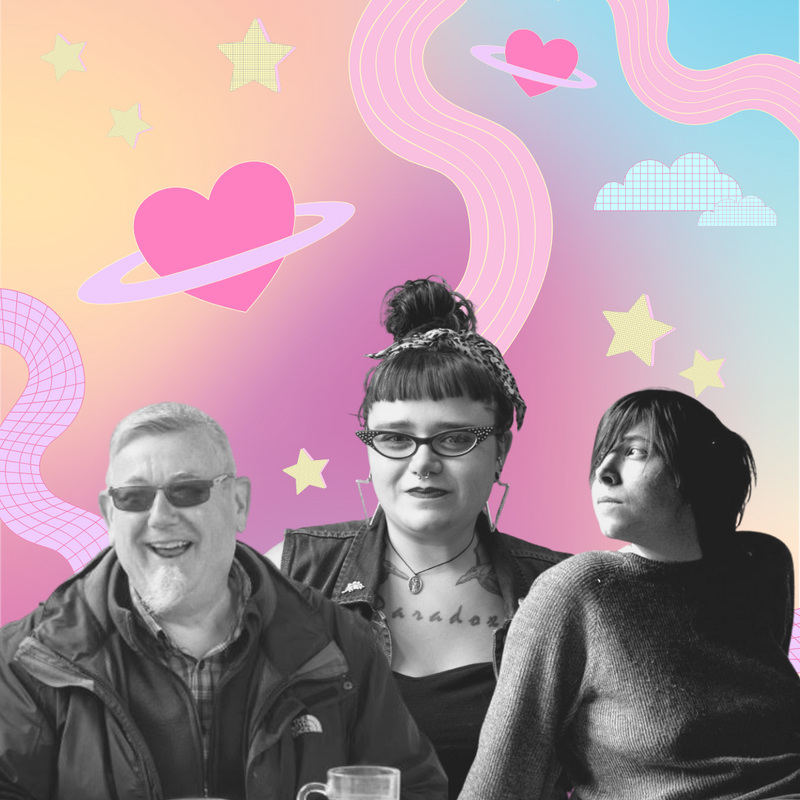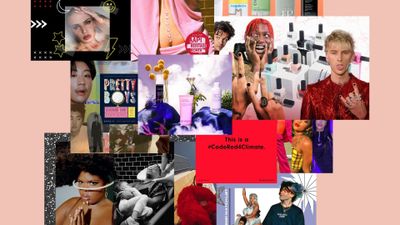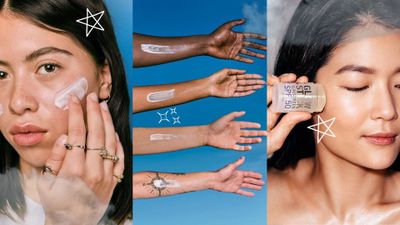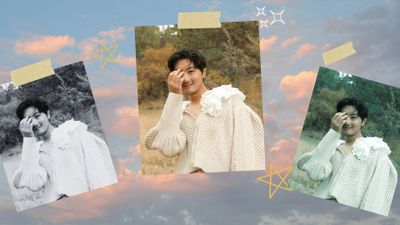Melissa Ianniello, a queer photographer, says, “Those who today are between 60 and 90 years old have literally made the history of feminism and the LGBTQ+ movement.
“It is right and important that the new generations know who we come from and why. It is also right that we network: only with intergenerational solidarity, brotherhood, and sisterhood can we really defeat patriarchy and homo-lesbo-bi-transphobia.”
SEE ALSO: Living with HIV in 2021: Three gay men share their stories and how they fight the stigma
Very Good Light interviewed three LGBTQ+ identifying adults to learn about the impact of LGBTQ+ history from the older generations of this community. As individuals who have stood in their truth for longer than some members of Gen Z have been alive, Tony Openshaw, Sassafras Lowery, and Melissa Ianniello have valuable advice and stories to remind us how to live authentically.
Tony Openshaw (he/him), 66-years-old, is a gay man from Manchester, England. After coming out as a young adult, Tony now manages Out in the City, a social outlet and support group for LGBTQ+ identifying individuals over the age of 50. Sassafras Lowrey (ze/hir), 37-years-old, is a queer author and journalist who came out in hir late teenage years. Melissa Ianniello (she/her), 30-years-old, is a photographer and illustrator from Bologna, Italy, who identifies as lesbian and bigender.
Finding chosen family
When Tony came out to his family, his sexuality was rejected and ignored. He moved out of his parent’s house and into his first solo apartment, where he was eventually evicted on the grounds of his sexuality. Later on in life, Tony settled down and found a long-term partner of 31 years. When his partner passed away suddenly, he went to the bereavement center, where the woman there asked if they had a civil partnership.
“I said, ‘No we didn’t have a civil partnership, but we lived together for 31 years.’ She said, ‘Not next of kin then.’ She totally disregarded our relationship.”
Despite these experiences of blatant homophobia and discrimination, Tony says his feelings of loneliness and separation mostly came from an unwillingness to be seen by society. “Nobody talked about being gay, what that meant, and you didn’t know who to turn to,” he says.
Sassafras noticed similar issues in hir childhood. Ze made hir writing a space “for current and former homeless LGBTQ+ youth to not feel alone in their experience.”
Melissa believes there’s a growing need, as you age, to continue to embrace and experience the fullness of your sexuality to avoid this loneliness and exclusion from society.
“The challenge that older people, whether LGBTQ+ or not, have to face about their sexuality is to see recognized by the outside world the right to love, to choose a new partner, to have sex, to masturbate, all this without feeling guilty or ashamed,” she says. “Sexuality is something necessary, powerful, and wonderful at any age, and to oppress and suppress it is only harmful.”
Building careers
Both Sassafras and Melissa chose to focus their work in photography and writing around their LGBTQ+ identity. Melissa is grateful to say that her work has never been undermined due to this choice. However, she has certainly noticed the effects of the intersection of her identity and her career.
“I have felt a certain reluctance on the part of Italian magazines and newspapers to publish my photographs,” she says. “I have received several compliments from various photo editors, but I have often been told that the director of the magazine/newspaper was not interested in the topic or that the topic had already been covered in a previous article.”
Melissa is concerned to see that many media publications think that they can cover the LGBTQ+ community in just one article during one month, but the LGBTQ+ community exists 24/7.
As an author, Sassafras says that ze “knows that there are opportunities that have been closed to me because of how deeply rooted in queer subcultures my novels are.” However, this is also what makes hir work so valuable.
When looking to turn hir novel Lost Boi, a “queer punk” version of Peter Pan, into a television series, production companies have said that they felt hir work “was just too edgy/queer for their bosses to feel like they could sell the idea.” Suggesting that one’s sexuality or gender identity should be considered “edgy” speaks to the challenges faced with marketability in a heteronormative industry that both Melissa and Sassafras have experienced.
Growing older
In Tony’s work with Out in the City, he has noticed a stigma around older LGBTQ+ generations. “I would like to break down the stereotype that all older people are the same. We are just as diverse as any other group – and should not all be lumped together.”
Tony attempts to challenge these stigmas with his work by creating a space in which older LGBTQ+ individuals can still explore social and romantic relationships.
Melissa also uses her work to celebrate the vibrancy of older LGBTQ+ generations. “I want to denounce the ageist society that looks at the elderly only in terms of assistance and pietism. In short, I did not want to support the unfortunately widespread idea of the ‘lonely elderly’ but, on the contrary, to show that elderly people, including LGBTIQ, feel much more than loneliness. In general, with my work, I hope to teach the younger generation to have interest, respect, and curiosity for older generations.”
Melissa hopes that viewers can see the “joy and pride” that all ages of the LGBTQ+ community experience.
Words of encouragement
These three individuals have bravely thrown themselves into the fight for LGBTQ+ representation and awareness. Their work invites individuals, young and old, to find their place in the LGBTQ+ community. With this knowledge, they leave some words of wisdom to younger generations.
Tony speaks to the importance of continuing the fight for equality. “Be watchful,” he cautions. “We had to fight for our rights and they could easily be taken away. There are many countries in the world where people cannot express their sexuality or gender identity without fear of persecution or torture.”
Sassafras reminds readers it is critical to remain true to your identity.”Don’t be afraid to follow your creative passions and develop the kinds of work and stories that are most interesting to you regardless of how marketable people tell you they will be.”
Melissa calls on the idea of being “artivists.” “My advice would be to always be yourself and, when possible, turn your artistic work into political work as well. I think we LGBTIQ+ people have a great opportunity: to be ‘artivists,’ that is, artist-activists. We also have a responsibility: to speak and transmit positive messages for those who cannot do so.”
1) How Gen Z uses sex as a tool for self-discovery, and other views on hookup culture
2) How Black people changed queer history
3) Here’s what I wish I knew before coming out as queer
4) The ultimate Pride beauty kit is here – and 100% goes to a good cause






